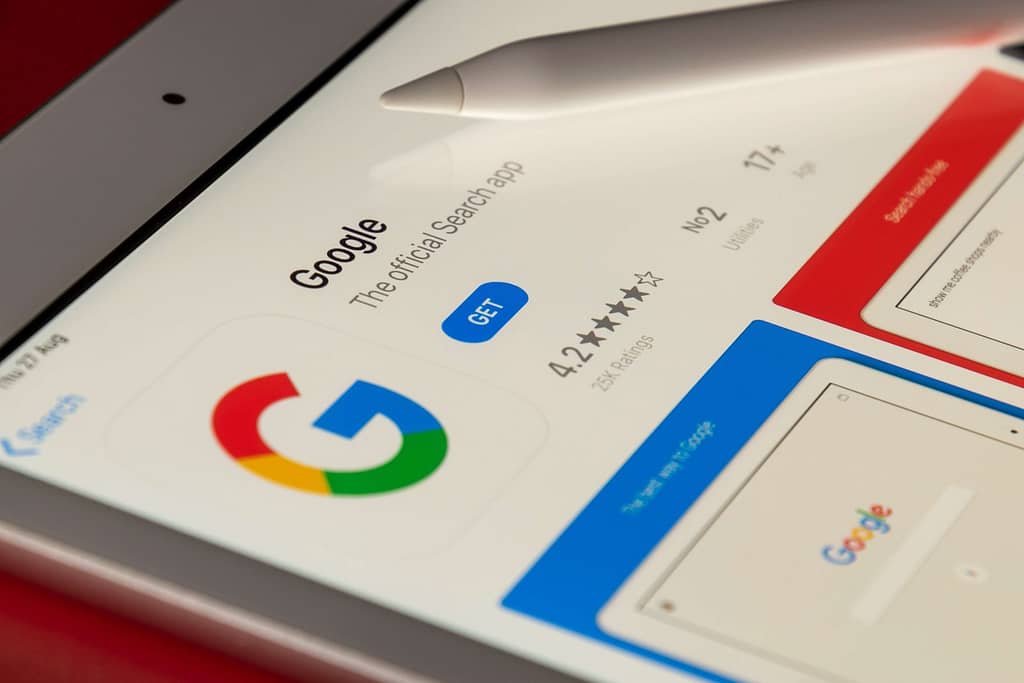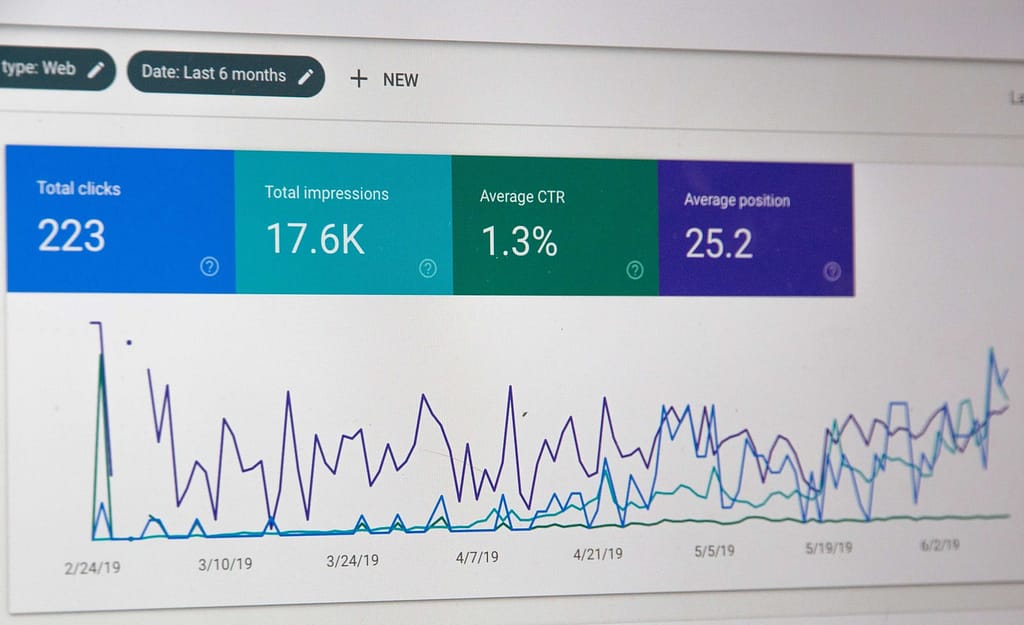If you are looking for the Top SEO Agency then contact us today and set up a free consultation
Introduction
Understanding SEO begins with recognizing its significance in the vast landscape of the internet. SEO is the practice of optimizing your online content so that search engines, like Google, can showcase it to users searching for relevant information. It’s not just about ranking high; it’s about connecting with your target audience effectively.
Visibility and Ranking on Search Engines
Picture this: you’re searching for a product or service online. How often do you venture beyond the first page of search results? Research indicates that the majority of users rarely go beyond the first page. This is where SEO plays a pivotal role. By optimizing your website, you increase the likelihood of appearing on that coveted first page, ensuring potential customers find you.

Significance of Appearing on the First Page
Let’s face it – when was the last time you scrolled to the second page of Google search results? Research shows that the majority of users don’t venture beyond the first page. Therefore, achieving a high ranking on search engines, especially the first page, is paramount.
The Role of SEO in Improving Ranking
So, how do you get your business on that coveted first page? SEO is the key. Search Engine Optimization involves a series of techniques and strategies that signal to search engines that your content is not only relevant but also authoritative. The better optimized your content is, the higher it ranks, making it more visible to potential customers.
SEO is the digital elevator that takes your business to the top floor of search engine results. It’s not just about visibility; it’s about being visible where it matters the most – on the first page.
Increased Website Traffic

Imagine your website as a bustling storefront on a busy street. Now, picture hordes of potential customers walking by every day, peering inside, and maybe even making a purchase. This bustling activity is akin to what increased website traffic can do for your business.
Link Between SEO and Organic Traffic
SEO isn’t just about optimizing for search engines; it’s about optimizing for your audience. By strategically using relevant keywords, you attract organic traffic – visitors genuinely interested in what you offer. This isn’t just a numbers game; it’s about quality. Increased organic traffic means more eyes on your products or services from users actively seeking them.
Importance of Targeted Traffic for Businesses
Not all website traffic is created equal. It’s not just about getting anyone and everyone to visit your site; it’s about attracting your target audience. SEO enables you to reach those who are likely to convert into customers. The importance of targeted traffic lies in its potential to drive sales, engagement, and other valuable actions on your website.
Increased website traffic through SEO is like inviting the right people into your store – those who are not just browsing but are genuinely interested in what you have to offer.
Have you ever landed on a website that felt confusing or outdated? Search engines consider user experience in their ranking algorithms. SEO encourages businesses to create websites that are not only search engine-friendly but also user-friendly. This includes optimizing site structure, improving navigation, and ensuring a seamless experience for visitors.
Building Credibility and Trust
In the digital realm, trust is the currency of success. As a business owner, establishing credibility and trust is fundamental, and SEO plays a pivotal role in this crucial aspect of your online presence.
How High Search Engine Ranking Builds Trust
Think about the last time you searched for a product or service. Did you click on one of the first few results or scrolled down to the bottom of the page? Chances are, you chose a higher-ranked result. This is because high search engine ranking is perceived as an endorsement by the search engine. Users inherently trust websites that appear at the top of the results.
The Role of SEO in Establishing Authority
SEO is not merely about getting to the top; it’s about staying there by showcasing your expertise and authority in your field. When your website consistently provides valuable, relevant content, search engines recognize it as a reliable source. This recognition, in turn, instills confidence in your audience, leading to increased credibility and trust.
In the digital landscape, where choices abound, a high search engine ranking acts as a virtual seal of approval, assuring users that your business is a reputable and trustworthy source. Building credibility and trust through SEO is not just about visibility; it’s about creating a lasting positive impression that keeps users coming back.
Competitive Advantage
In the competitive business landscape, staying ahead is crucial. SEO provides a competitive edge by helping your business outperform rivals in search engine rankings. A strong online presence ensures that potential customers choose your products or services over others.
Local SEO for Small Businesses
For small businesses, conquering the local market is often the first step towards broader success. Local SEO, a specialized facet of Search Engine Optimization, serves as a powerful ally in this endeavor.
Targeting Local Customers Through SEO
Imagine you run a quaint coffee shop or a boutique in a specific neighborhood. Local SEO allows you to be precisely where your potential customers are searching – in your local community. By optimizing your online presence for location-specific keywords, you increase the chances of being discovered by residents or visitors in your area.
Importance of Local Search Optimization
When someone in your vicinity searches for a product or service you offer, you want to be front and center in the results. Local search optimization ensures that your business appears in local searches, Google Maps, and other location-based services. This is crucial for attracting foot traffic and converting online searches into offline visits and sales.
Local SEO acts as a digital signpost, directing those in your immediate vicinity to your business. It’s about being visible and accessible to the community you serve, creating a strong foundation for small businesses to thrive locally and grow beyond.
Adaptation to Algorithm Changes
In the ever-evolving landscape of search engines, one constant remains – change. Search engine algorithms, the complex formulas determining how content is ranked, undergo frequent updates. Businesses that adapt to these changes thrive, and this is where the strategic prowess of SEO comes into play.
The Dynamic Nature of Search Engine Algorithms
Imagine search engine algorithms as a constantly evolving puzzle. What works today might not be as effective tomorrow. Search engines like Google continually refine their algorithms to enhance user experience and deliver more accurate results. This dynamic nature poses both challenges and opportunities for businesses.
How SEO Helps Businesses Adapt to Changes
SEO isn’t a static strategy; it’s a dynamic process that involves staying abreast of algorithmic shifts. SEO professionals monitor changes in search engine algorithms, analyze their impact, and adjust strategies accordingly. This adaptability is crucial for maintaining and improving search engine rankings over time.
Businesses that embrace the fluidity of search engine algorithms through SEO position themselves as agile players in the digital game. It’s not just about reaching the top; it’s about staying there by being attuned to the ever-changing rules of the online realm. Adapting to algorithm changes is not a challenge but an opportunity to outperform competitors and solidify online presence.
Measurable Results with Analytics
In the digital age, the ability to measure and analyze results is a game-changer. When it comes to SEO, leveraging analytics tools becomes essential for businesses aiming not just for visibility but tangible, measurable success.
Utilizing Analytics Tools to Measure SEO Success
SEO efforts are not a shot in the dark. With the wealth of analytics tools available, businesses can precisely measure the impact of their SEO strategies. Platforms like Google Analytics provide insights into website traffic, user behavior, and the effectiveness of various optimization techniques.
Tracking and Adjusting Strategies for Optimal Results
The beauty of analytics lies in its capacity to inform decision-making. By tracking key performance indicators (KPIs) such as organic traffic, conversion rates, and bounce rates, businesses can understand what’s working and what needs adjustment. This data-driven approach allows for continuous refinement of SEO strategies, ensuring optimal results.
SEO without analytics is like sailing without a compass – you might be moving, but you won’t know if you’re heading in the right direction. The integration of analytics into SEO empowers businesses to make informed decisions, adapt strategies in real-time, and maximize the return on their digital investment. It’s not just about doing SEO; it’s about doing it intelligently with a keen eye on the metrics that matter.
Cost-Effectiveness of SEO
In the world of digital marketing, where every penny counts, business owners are constantly seeking strategies that offer the best bang for their buck. Enter SEO – a cost-effective powerhouse that provides long-term benefits and a sustainable approach to online success.
Comparing SEO Costs to Traditional Advertising
Traditional advertising methods often come with hefty price tags – be it television commercials, radio ads, or print media. In contrast, SEO costs are relatively modest. While there’s an initial investment, the long-term benefits far outweigh the expenses. Unlike paid advertising, where costs continue to accrue, SEO establishes a solid online presence that endures over time.
Long-Term Benefits and Return on Investment
Consider SEO as a wise investment that keeps paying dividends. Once your website climbs the search engine ranks, the organic traffic it attracts is essentially free. The upfront costs of SEO translate into sustained visibility, increased credibility, and a continuous flow of targeted visitors. This long-term approach ensures a robust return on investment that traditional advertising struggles to match.
SEO is the frugal entrepreneur’s secret weapon. It’s not about spending big budgets on short-lived campaigns; it’s about strategically investing in the online foundation of your business. The cost-effectiveness of SEO lies not just in its affordability but in the enduring value it brings to your brand, ensuring sustainable growth in the highly competitive digital landscape.
Social Media Integration and SEO

In the interconnected digital landscape, the marriage of social media and SEO is more than a strategic alliance—it’s a dynamic synergy that can catapult your online presence to new heights.
The Symbiotic Relationship Between Social Media and SEO
Social media platforms are not just spaces for sharing memes and updates; they are influential players in the SEO game. Search engines take social signals into account, considering likes, shares, and comments as indicators of a website’s credibility and relevance. Therefore, integrating your social media efforts with your SEO strategy becomes a powerful tool for enhancing your online visibility.
Amplifying Online Presence Through Integration
Picture this: your content is shared on social media platforms, generating likes, shares, and comments. This social activity sends positive signals to search engines, contributing to improved search rankings. Conversely, when your website ranks higher on search engines, it attracts more traffic, which can be channeled back to your social media profiles, creating a positive feedback loop.
Social media and SEO are not isolated strategies but intertwined elements of a comprehensive digital marketing approach. By strategically integrating your social media and SEO efforts, you amplify your online presence, foster engagement, and create a digital ecosystem where each component strengthens the other. It’s not just about being present; it’s about being seamlessly interconnected in the vast and competitive online landscape.
Mobile Optimization for SEO

In an era dominated by smartphones, ensuring your website is mobile-friendly isn’t just a trend; it’s a necessity for success in the digital realm. Mobile optimization is not merely about adapting to changing user preferences; it’s a crucial component of SEO that directly impacts your website’s search engine rankings.
The Increasing Importance of Mobile-Friendly Websites
Consider this: more users access the internet via mobile devices than ever before. Search engines recognize this shift in user behavior and prioritize mobile-friendly websites in their rankings. A mobile-friendly site is not just a convenience for users; it’s a strategic move that improves your visibility in search engine results.
Impact on Search Engine Rankings and User Experience
Search engines, such as Google, prioritize user experience in their algorithms. A mobile-optimized website not only caters to the preferences of mobile users but also contributes to a positive user experience. Seamless navigation, faster loading times, and responsive design not only please visitors but also send positive signals to search engines, influencing your search rankings.
Mobile optimization is a non-negotiable aspect of modern SEO. It’s not just about ticking a box; it’s about aligning your digital presence with user expectations and search engine requirements. Neglecting mobile optimization isn’t just a missed opportunity; it’s a potential detriment to your SEO efforts in an era where mobile devices reign supreme.
Content Marketing and SEO
In the digital arena, content is king, and the marriage of content marketing and SEO is the power couple that reigns supreme. It’s not just about creating content for the sake of it; it’s about crafting valuable, relevant material that resonates with both users and search engines.
How Content Quality Affects SEO
Search engines are not just scanning for keywords; they’re assessing the quality and relevance of your content. High-quality, informative, and engaging content is not only more likely to be shared and linked to but is also favored by search engine algorithms. The mantra here is simple: content that adds value to the user experience is content that ranks well.
Creating Valuable Content for Both Users and Search Engines
The synergy between content marketing and SEO lies in striking the balance between user-centricity and search engine requirements. Your content should not only answer user queries but also be structured and optimized in a way that search engines can easily comprehend. This involves strategic keyword placement, thoughtful meta descriptions, and a user-friendly format.
Content marketing is not just a complementary element of SEO; it’s its very essence. It’s about creating content that serves a dual purpose: providing value to your audience and aligning with the intricacies of search engine algorithms. As the digital landscape evolves, businesses that prioritize content marketing and SEO find themselves not just ranking higher but also building a loyal and engaged audience. It’s not just about words on a page; it’s about crafting a narrative that resonates and elevates your brand in the vast digital cosmos.
Common SEO Mistakes to Avoid
Embarking on an SEO journey is exciting, but pitfalls abound. Steering clear of common mistakes is not just essential; it’s a strategic move that ensures your efforts yield the desired results.
Pitfalls That Can Hinder SEO Success
- Keyword Stuffing: Loading your content with keywords might seem like a shortcut to higher rankings, but it can backfire. Search engines penalize keyword stuffing, and it compromises the readability and quality of your content.
- Neglecting Mobile Optimization: With the surge in mobile users, overlooking mobile optimization is a cardinal sin. Search engines prioritize mobile-friendly websites, and neglecting this aspect can result in lower rankings.
- Ignoring Quality Content: Content is the backbone of SEO. Focusing solely on keywords without delivering valuable, informative content is a grave mistake. Quality content not only engages users but also satisfies search engine algorithms.
- Overlooking the Importance of Backlinks: Backlinks are like votes of confidence from other websites. Ignoring the significance of building a healthy backlink profile can hinder your site’s authority and, consequently, its rankings.
Tips for Steering Clear of Common Errors
- Follow Ethical Practices: Resorting to black-hat SEO tactics might offer short-term gains, but the long-term consequences can be severe. Stick to ethical practices that align with search engine guidelines.
- Stay Informed About Algorithm Changes: Search engine algorithms are dynamic. Failing to stay informed about updates can result in outdated strategies. Regularly monitor industry news to adapt to algorithmic changes proactively.
- Prioritize User Experience: SEO is not just about search engines; it’s about creating a positive experience for users. Prioritize user-friendly design, easy navigation, and content that genuinely addresses user needs.
- Regularly Audit Your Website: Conducting regular audits of your website helps identify and rectify issues. This includes checking for broken links, optimizing images, and ensuring that your site’s structure aligns with SEO best practices.
Avoiding common SEO mistakes is not just about compliance; it’s about maximizing the effectiveness of your SEO efforts. By steering clear of these pitfalls, you set the stage for sustained success, higher rankings, and a positive online reputation. SEO is a journey, and navigating it with prudence ensures you reach your digital destination with flying colors.
Conclusion
In conclusion, the need for SEO for business owners is undeniable. It’s not just about ranking high on search engines; it’s about connecting with your audience, building trust, and staying competitive in a digital world. As a business owner, investing in SEO is an investment in the long-term success and sustainability of your business.
If you are ready to start your SEO journey with the top SEO agency click here to schedule and appointment.
Frequently Questions About SEO
No, SEO is beneficial for all businesses, whether online or offline. It helps improve visibility and attracts potential customers.
The timeline for SEO results varies, but businesses typically start seeing improvements within a few months of implementing effective strategies.
While some basic SEO can be done independently, hiring a professional ensures a comprehensive and strategic approach for optimal results.
No, social media and SEO complement each other. Both are essential for a well-rounded digital marketing strategy.
Common mistakes include keyword stuffing, neglecting mobile optimization, and overlooking the importance of quality content.
